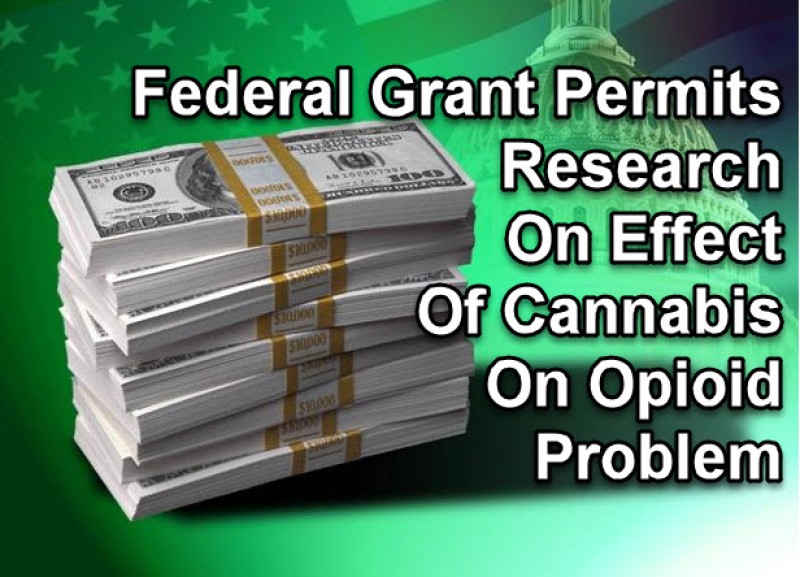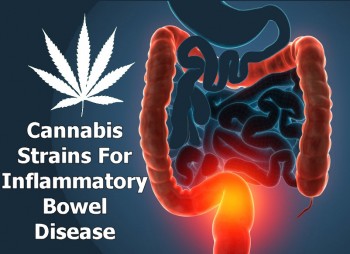Federal Grant Permits Research On Effect Of Cannabis To Opioid Problem
This week saw the National Institute of Health (NIH) receiving a federal grant of $3.8 million that will allow researchers to analyze the impact of medical cannabis on opioid use. The study, which will take five years, will be carried out by scientists from the Albert Einstein College of Medicine and the Montefiore Health System. This is a significant milestone for cannabis legalization and research, another step forward as it will help address the opioid crisis in the United States.
Objectives and Methodology
The research intends to understand the evidence so far that supports claims of patients stating that medical cannabis use has helped them reduce their dependency on opioids for chronic pain, enabling them to manage pain without side effects. The scientists will be using medical cannabis cultivated in New York, which is a shift from the low-quality cannabis being grown by federal contractors. The study will focus on patients suffering from chronic pain from HIV. Two hundred fifty HIV-positive and HIV-negative adults will be enrolled to participate in the study, all of whom use opioids and have been given the green light from physicians to use medical cannabis.
Chronic pain and opioid use is more prevalent in HIV-positive patients compared to the rest of the population. Between 25 to 90% of HIV-positive adults have to deal with chronic pain. Additionally, HIV-positive adults are more likely to get prescribed opioids to help with pain management despite the obvious risk for abuse.
Chinazo Cunningham, principal investigator of the study, and the associate chief of general internal medicine, says, “As state and federal governments grapple with the complex issues surrounding opioids and medical marijuana, we hope to provide evidence-based recommendations that will help shape responsible and effective healthcare practices and public policies.” The chosen participants will engage in biweekly online surveys that are designed to extract data on their pain levels while analyzing both medical and illegal use of cannabis and opioids. The participants will also be made to submit blood and urine samples personally every 90 days to the research team.
“There is a lack of information about the impact of medical marijuana on opioid use in those with chronic pain,” Cunningham says. “We hope this study will fill in the gaps and provide doctors and patients with some much needed guidance.”

Opioid Problem
In 2015 alone, American doctors wrote around 300 million prescriptions for pain medications. In almost all of the cases, the prescriptions from doctors actually exceeded the safe dosage limit of 3 days, and a quarter of these cases showed that opioid prescription use was stretched to as long as 27 days. Prescription opioid use is one of the leading causes of death in the United States, with an estimated 46 people dying everyday from abusing opioids such as Vicodin and OxyContin. Even though data strongly shows that high opioid doses lead to an increase in overdose and death, pharmaceutical companies still encourage doctors to prescribe strong doses.

Major Milestone
This is the first cannabis study that intends to scientifically analyze the plant’s use in addressing the opioid use. It also comes at a time when opioid abuse rates are increasing at terrifying rates. This issue has even been addressed by President Donald Trump, who last week declared a national emergency on account of the opioid epidemic, and allowed more federal money to be used to fight consumption and sales of addictive opioids. However, the White House Commission on Combating Drug Addiction and the Opioid Crisis fell short in including the use of medical cannabis in the public statement given to Trump, completely ignoring thousands of comments relating to cannabis use.
Although there is significant anecdotal evidence and data cementing the fact that cannabis use contributes to a decline in opioid addiction, researchers still haven’t studied the impact of cannabis on any population over a long period of time. Research also shows that cannabis is as much as 20 times more powerful than aspirin in its anti-inflammatory properties, while states that have legalized medical cannabis have reported a decrease in analgesic overdoses by as much as 25% compared to other states.
Despite the failures of the current administration when it comes to legalization, the news of the NIH funding for cannabis research is a silver lining to the current situation.
OTHER STORIES YOU MAY ENJOY...
HOW THE GOVERNMENT CREATED THE OPIOD PROBLEM, CLICK HERE.
OR..
DR. MICHELE ROSS TALKS CANNABIS FOR OPIATE ADDICTION, CLICK HERE.







